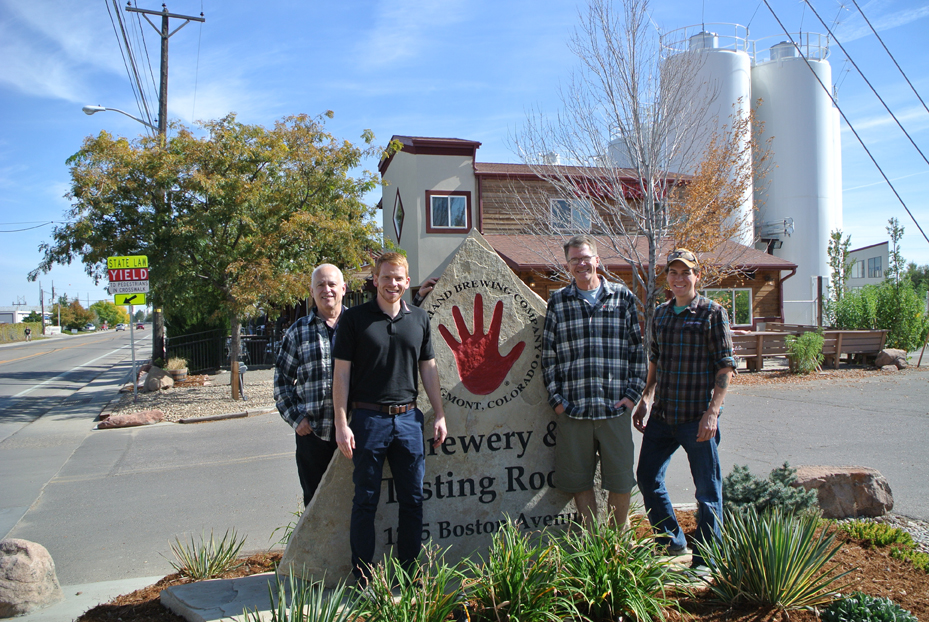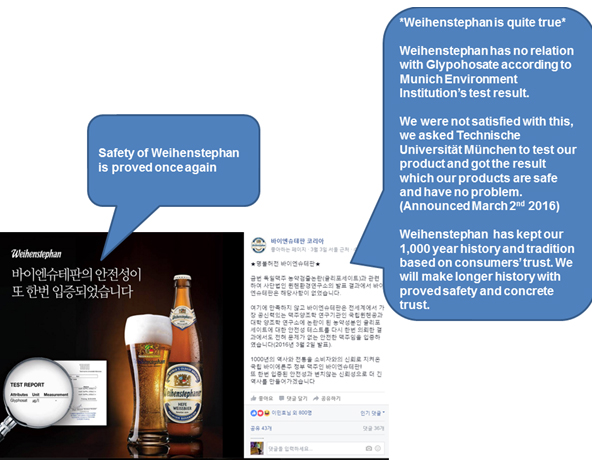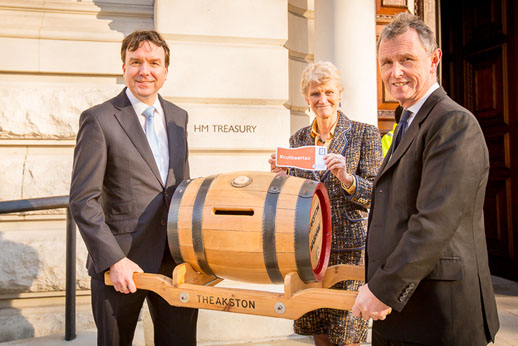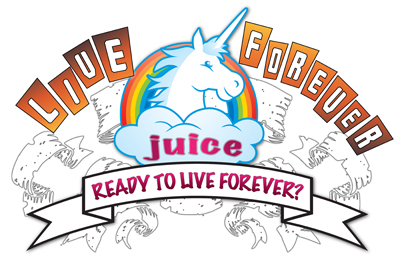It’s hard to imagine that the corporate fat cats, aka members of the global business elite, who read Bloomberg Businessweek, regularly go for a sour beer. I mean, can you envisage the Coke-swilling super-investor Warren Buffett ever allowing a Rodenbach Grand Cru to touch his lips?
At the Craft Brewers Conference in Portland, Ziemann Holvrieka performed a competition in which various prizes were drawn. The first prize was the technological advice by a Ziemann “brew doc”.
Bad news travel fast and to unexpected places. Only three days after German media reported that a Munich environmental institute had detected traces of the weed killer glyphosate in 14 German beer brands, Korean retailers and restaurateurs on 29 February were biting their nails, wondering whether to place any more orders with the country’s importers of German beers.
Will there be another cut in beer duty when the Chancellor of the Exchequer releases his budget on 16 March 2016? It is to be hoped.
Liverpool boss Jürgen Klopp has signed a four-year contract to become an ambassador for the German beer brand Warsteiner.
- The Brewers of Europe, Brussels, Belgium
When a new product fails to launch successfully, it´s often because of poor communication. And this is true also of the beverage and liquid food industry. What use is the most fantastic drink if the packaging is poor, it´s the wrong color, or the marketing pitch is inappropriate. Not forgetting of course that even the best ideas have to be workable from a technical angle. drinktec 2013 is setting out to provide support in this all-important aspect of communication: The Innovation Flow Lounge at the West Entrance of the Messe München exhibition center is a place for making contacts, sounding out new ideas, airing problems and designing strategies for the future. Its motto is: Marketing meets technology.
Man-made climate change is the major challenge of the 21st century. It will also affect the brewing sector and agriculture in various ways. This article introduces a study on greenhouse gas emissions associated with beer using the example of a Bavarian brewery, since the increase in average annual temperature of 1.5 degrees in the Bavarian Alpine foothills over the last 100 years is twice as high as the global average.
The natural food industry was abuzz last week about a new product launched at the Natural Foods Expo in Baltimore, MD named “Live Forever Juice.” Live Forever Juice turned many heads and sparked numerous conversations at their booth, thanks in part to its over-the-top rainbow and unicorn branding scheme. The box sparked many other conversations due to its outrageous claims that users could “live forever” if they drank one bottle per day. The box also raised eyebrows with text like “perfect for paranoid people” and “drink 1 bottle of Live Forever Juice each day forever.” In an industry that can get very serious, Live Forever Juice stood out in the crowd and turned curious glances into nods of approval as visitors began to understand the project.
Things are beginning to heat up for the refrigeration and air-conditioning industries. At the end of 2009, the next stage of regulations in the government’s plan to phase out R22 becomes effective. The refrigerant, utilized in countless cold storage warehouses and refrigeration systems, is now only available as a recycled commodity. Since no new R22 (chlorodifluoromethane) may be sold, there might soon be a bottleneck, which synthetic replacements can only bridge for a short while. Also, the climate-damaging hydrofluorocarbons are being threatened with a ban. The funding program of the German government therefore makes the radical conversion to natural refrigerants a feasible alternative.






